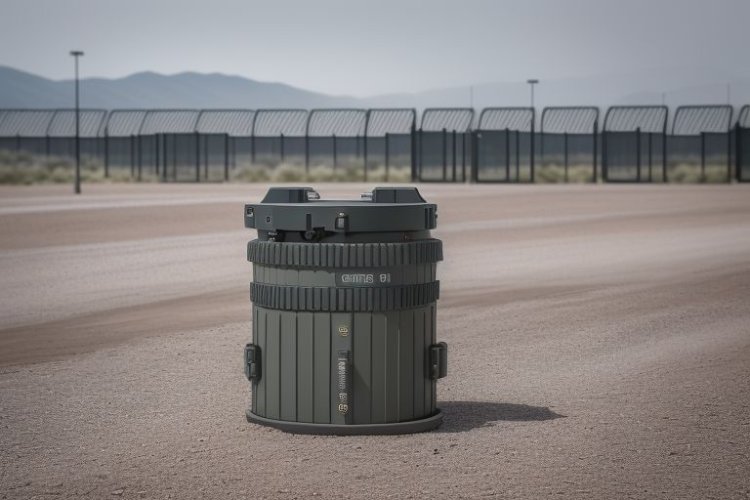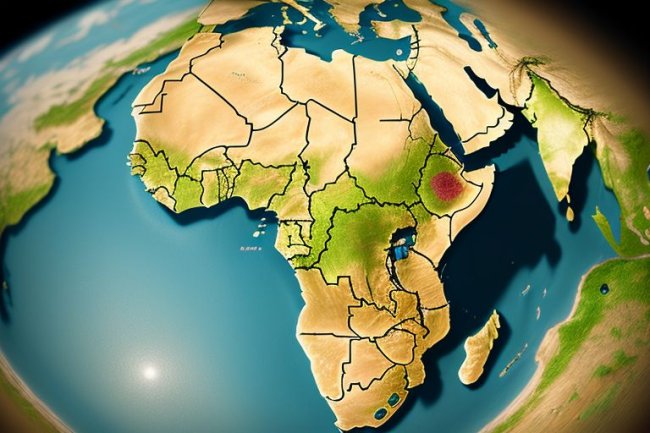International Border Issues
Many international borders were established through colonization or geopolitical decisions that disregarded the historical, cultural, and ethnic realities of affected populations, thus creating age long disputes and conflicts. These unresolved territorial claims has over the years fueled tensions and grievances among nations sharing borders , with many leading into wars and various crisis which have claimed human lives, devastated the environment, traumatized the people and destroyed economies.

International border issues are complex and multifaceted, often rooted in deep-seated underlying causes that go beyond mere territorial disputes. To effectively address these issues and prevent conflicts or emergencies, it is crucial to gain a comprehensive understanding of their underlying causes. Most of which are historical disputes over land ownership or control. Many international borders were established through colonization or geopolitical decisions that disregarded the historical, cultural, and ethnic realities of affected populations, thus creating age long disputes and conflicts. These unresolved territorial claims has over the years fueled tensions and grievances among nations sharing borders , with many leading into wars and various crisis which have claimed human lives, devastated the environment, traumatized the people and destroyed economies.
Economic factors play a vital role in international border issues. Disparities in wealth distribution, trade imbalances, and resource scarcity do create economic pressures that exacerbate conflicts along borders. Unequal access to resources may lead to cross-border smuggling, illegal migration, or competition for natural resources, further straining relationships between neighboring countries.
Political instability and governance challenges are additional underlying causes contributing to border issues. Weak institutions, corruption, political rivalries, or ill motivated authoritarian regimes can hinder effective border management and cooperation between nations. Such instability often leads to an increase in transnational crimes like human trafficking or drug smuggling. Lastly, cultural differences and identity struggles can impact international borders.
Prevention Strategies For International Border Conflicts And Emergencies
International border conflicts and emergencies can have far-reaching consequences, impacting the stability, security, and well-being of nations involved. To effectively address these issues, it is crucial to implement preventive strategies that tackle the underlying causes. Firstly, fostering diplomatic dialogue and cooperation between neighboring countries is vital. Encouraging regular communication channels, such as joint commissions or bilateral meetings, allows nations to discuss concerns openly and find mutually beneficial solutions. This approach helps build trust and understanding, reducing the likelihood of conflicts arising from misunderstandings or miscommunication. Secondly, promoting economic interdependence can contribute significantly to preventing border conflicts. By incentivizing cross-border trade partnerships and investments in shared infrastructure projects, nations are more likely to prioritize peaceful relations due to the interdependency created by economic ties. Economic cooperation not only boosts prosperity but also fosters a sense of mutual interest in maintaining stability.
Additionally, investing in regional organizations or frameworks aimed at conflict prevention can be instrumental in addressing underlying causes of border disputes. These organizations can facilitate dialogue among member states while providing platforms for mediation or arbitration if tensions arise. Lastly, addressing socio-economic disparities along international borders is crucial for conflict prevention.
Emergency Intervention Measures To Resolve International Border Disputes
When it comes to addressing international border disputes, emergency intervention measures play a crucial role in preventing and resolving conflicts. These measures aim to address the underlying causes of such disputes and facilitate peaceful resolutions. One effective measures of WSandN is establishing an international mediation framework. This framework would involve the appointment of neutral mediators who can facilitate dialogue between conflicting parties and help them reach a mutually acceptable solution.
Mediators could also provide guidance on legal matters related to border disputes, ensuring that decisions are based on international law and treaties. Another important measure is the deployment of peace facilitators to facilitate negotiations between disputing parties and territories. These facilitators can act as a buffer between conflicting parties, reducing tensions and preventing escalations into any form of armed conflicts. Peace ambassadors would be responsible for monitoring the situation, reporting any violations or provocations, and facilitating negotiations between the involved states.
As earlier stated, promoting economic cooperation can contribute to resolving border disputes by addressing some of the underlying causes. By encouraging cross-border trade, investment, and infrastructure development projects, states can foster mutual interdependence, which reduces incentives for conflict over disputed territories. In conclusion, peaceful emergency intervention measures are essential for resolving international border disputes.




















